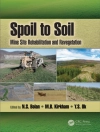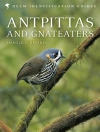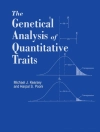Genetics professor Michelle Murphy loses her husband under mysterious circumstances and without warning, while their brilliant eight year old daughter Avalon, adopted in Kazakhstan, stubbornly believes she is a mutant.
As if this were not enough she soon finds herself thrown into the middle of a quickly thickening plot, where the legacy of Genghis Khan meets the hunt for FOXP5, a genetic transcription factor that could herald the dawn of new human species.
Initially caught helplessly between well-meaning fellow scientists, the government and more sinister agents, Michelle, with the help of a host of unlikely heroes, eventually takes control and finds the courage to confront the decision of whether to save human lives or humanity.
The scientific and technical aspects underlying the plot – in particular aspects of FOX proteins, genetic mutations, viruses and cancer as well as the relation between intelligence and cortical complexity – are introduced and discussed by the authors in an extensive non-technical appendix.قائمة المحتويات
Preface.- Part I: The Novel.- Part II: The Science behind the fiction.
عن المؤلف
David Deamer is Research Professor of Biomolecular Engineering at the University of California (Santa Cruz). He recently published First Life: Discovering the Connections between Stars, Cells, and How Life Began (University of California Press, 2011). Deamer’s primary research interest focuses on nucleic acid molecules as they are driven electrophoretically through a nanoscopic channel, or nanopore, embedded in a lipid-bilayer membrane. The presence of the polynucleotide in the channel affects the ionic conductance in a manner related to chain length, concentration and base sequence. This observation has considerable potential for characterizing DNA and RNA in microscopic volumes of nucleic acid solutions. In 2014, Oxford Nanopore Technology introduced the Min ION, a portable nanopore sequencing instrument that is now undergoing testing by early users. These include NASA scientists who will send Min IONs to the International Space Station.
Wallace Kaufman is a science writer whose fiction, non-fiction, journalism, and poetry have appeared in major magazines and newspapers in the U.S., England, and Kazakhstan. He is a graduate of Duke University and he earned an M.Litt. from Oxford University. His research and reporting has taken him to Central and South America and to the arctic and Pacific coasts of Siberia. In Latin America he helped indigenous writers establish themselves and translated the first two books by Mayan writer Victor Montejo. In Kazakhstan he worked with Kazakhs on translations of their principal writers. His own translations of German, French and Spanish poetry and fiction have appeared in several magazines. His books include Invasive Plants: Guide to Identification and the Impacts and Control of Common North American Species, co-author with Dr. Sylvan Ramsey Kaufman, Stackpole Books, 2nd edition, 2013, Coming Out of the Woods, a memoir, Perseus Books, 2001, No Turning Back, Basic Books, 1994, Amazon, Gallery Books, Image Bank, 1991 and The Beaches Are Moving: The Drowning of America’s Shoreline, Doubleday, 1979; Duke University Press 1984. Co-authored with Dr. Orrin Pilkey.












